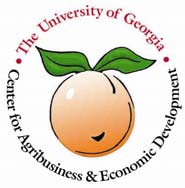Continue readingUSDA Finalizes New Microloan Program
Microloans up to $35,000 aim to assist small farmers, veterans, and disadvantaged producers
WASHINGTON, Jan. 15, 2013 — Agriculture Secretary Tom Vilsack today announced a new microloan program from the U.S. Department of Agriculture (USDA) designed to help small and family operations, beginning and socially disadvantaged farmers secure loans under $35,000. The new microloan program is aimed at bolstering the progress of producers through their start-up years by providing needed resources and helping to increase equity so that farmers may eventually graduate to commercial credit and expand their operations. The microloan program will also provide a less burdensome, more simplified application process in comparison to traditional farm loans.
“I have met several small and beginning farmers, returning veterans and disadvantaged producers interested in careers in farming who too often must rely on credit cards or personal loans with high interest rates to finance their start-up operations,” said Vilsack.“By further expanding access to credit to those just starting to put down roots in farming, USDA continues to help grow a new generation of farmers, while ensuring the strength of an American agriculture sector that drives our economy, creates jobs, and provides the most secure and affordable food supply in the world.”
The new microloans, said Vilsack, represent how USDA continues to make year-over-year gains in expanding credit opportunities for minority, socially-disadvantaged and young and beginning farmers and ranchers across the United States. The final rule establishing the microloan program will be published in the Jan. 17 issue of the Federal Register.
Administered through USDA’s Farm Service Agency (FSA) Operating Loan Program,
Tag Archives: farmers
Farmers and other people own most of Germany’s reneable energy production
Matthew McDermott wrote for Treehugger 6 January 2011, Over Half of Germany’s Renewable Energy Owned By Citizens & Farmers, Not Utility Companies
Germany’s promotion of renewable energy rightly gets singled out forNot only is that more distributed, but it also may be a faster way to get solar deployed:its effectiveness, most often by me as an example of how to do things well versus the fits and starts method of promotion common in the US. Over at Wind-Works, Paul Gipe points out another interesting facet of the German renewable energy saga: 51% of all renewable energy in Germany is owned by individual citizens or farms, totaling $100 billion worth of private investment in clean energy.
Breaking that down into solar power and wind power, 50% of Germany’s solar PV is owned by individuals and farms, while 54% of its wind power is held by the same groups.
In total there’s roughly 17 GW of solar PV installed in Germany—versus roughly 3.6 GW in the US (based on SEIA’s figures for new installations though the third quarter of 2011 plus the 2.6 GW installed going into the year).Nothing prevents Georgia Power or Colquitt Electric or any of the other power companies operating in Georgia from leading the solar pack. For example, power companies concerned that solar doesn’t produce at night could still deploy solar peak load generation, thus dispensing with natural gas peak load generation.Remember, Germany now produces slightly over 20% of all its electricity from renewable sources.
While the power companies are not leading, private organizations such as Tabby Solar, founded by a pair of doctors, are forging ahead anyway.
-jsq
Jack Kingston from Valdosta to Tifton to Atlanta
Why do you have to take the one politician that actually works for us?
 Well, some farmers in Tifton didn’t take kindly to
the main idea Kingston was pushing yesterday.
Said a farmer:
Well, some farmers in Tifton didn’t take kindly to
the main idea Kingston was pushing yesterday.
Said a farmer:
I have tried working with probationers and I’ll just say that it was a very inconsistent supply of workers.Hm, the VDT previously was of a similar opinion, an opinion that got quoted in the AJC. Maybe the VDT didn’t know Kingston was pushing HB 87, even though they sat down with him yesterday morning?
We don’t need an ALEC-organized private prison law like HB 87 to profit private prison company CCA, and we don’t need a CC private prison in Lowndes County. Spend those tax dollars on rehabilitation and education instead.
-jsq
Local Food for Economic Benefit in Georgia
 The UGA Center for Agribusiness and Economic Development has
quantified the economic effects of eating local food in Georgia,
in this report:
The Local Food Impact: What if Georgians Ate Georgia Produce?
Prepared by: Sharon P. Kane, Kent Wolfe, Marcia Jones, and John McKissick Center Report: CR-10-03 May 2010
The UGA Center for Agribusiness and Economic Development has
quantified the economic effects of eating local food in Georgia,
in this report:
The Local Food Impact: What if Georgians Ate Georgia Produce?
Prepared by: Sharon P. Kane, Kent Wolfe, Marcia Jones, and John McKissick Center Report: CR-10-03 May 2010
If Georgians produced all of the fruits and vegetables that they consumed, it could provide a way to close this utilization gap (the difference between state-wide production and consumption) of over $780 million per year. Even if this level can’t be achieved, simply closing the gap in one commoditylettuce, for examplecould mean an additional $83.6 million of direct revenue to local producers.
What is the lettuce gap? The Cordele Dispatch explains it: Continue reading
